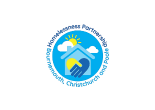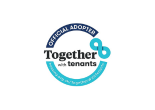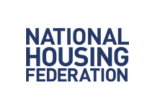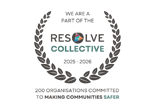BCHA are committed to upholding rigorous safety and quality standards for homes and communal areas to ensure the well-being and satisfaction of residents. This includes compliance with building codes and regulations, regular maintenance and inspections, and adherence to health and safety protocols, such as fire safety measures and accessibility standards. We also prioritise the use of quality materials and sustainable practices in design and construction, fostering a safe, clean, and welcoming environment.
Cleaning
We are responsible for monitoring cleanliness of communal areas in all blocks of flats including general needs flats, sheltered schemes and temporary accommodation.
Managing Communal Areas
BCHA is responsible for ensuring that communal areas for buildings that we own or lease are well-maintained for the safety and enjoyment of all residents. This includes regular cleaning, completion of repairs, and planned programmed work for the maintenance and upkeep of communal decoration. We encourage all residents to report any issues they observe, as we believe that maintaining these shared spaces is a collective responsibility.
Communal areas of flats should always be kept clear of any rubbish and personal belongings to ensure staff and contractors are able to work in these areas unhindered.
Items such as bicycles, pushchairs, wheelchairs, mobility scooters, electrical appliances, rubbish bags, furniture, pictures and children’s toys should all be stored inside your flat to comply with your responsibilities under the Tenancy Agreement.
Fire Safety
Minimising the risk of fire within your home and in communal areas is everyone’s responsibility. Tenancy Officers regularly inspect communal areas in blocks of flats to identify and deal with anything that may be a fire risk. BCHA carries out regular Fire Risk Assessments in blocks of flats to assess whether communal areas meet the requirements of Fire Safety law. Customers and leaseholders also have responsibilities to take steps to ensure the risk of fire is minimised, but you also need to know what to do in the event of a fire.
Communal areas of flats should always be kept clear of rubbish and personal belongings as they are important escape routes. These need to be kept clear in case of emergency. There are some measures you can take within your home to stay safe. You should have at least one smoke detector in your home, and test this once a week. Report any faulty smoke detectors to BCHA.
BCHA’s Kitchen Fire Safety Tips
Don’t leave cooking unattended.
Make sure you switch off the oven or hob when you have finished cooking.
Spark devices are safer than matches or lighters to light gas cookers.
Keep electrical leads, tea towels and cloths away from the oven and hob.
Take care when wearing loose clothing; it can easily catch fire.
Using Candles in your Home
- Place them on heat-resistant surfaces; tea lights can melt plastic such as TVs and baths.
- Place them away from materials that could catch fire such as curtains, clothing, furniture and hair.
- Keep out of reach of pets and children.
- Never leave candles or tea lights unattended; always extinguish them when leaving the room or going to bed.
In general:
- Make sure all equipment and appliances are in good working order. Make sure second-hand electrical appliances are tested for electrical safety before you use them.
- Do not overload electric sockets.
- Electrical extension leads should be kept to a minimum. Ensure you do not overload the extension lead by exceeding the stated maximum current.
- Unplug electrical equipment that is not being used.
- Always guard open or radiant fires.
- Do not use Liquid Propane Gas or paraffin heaters in flats or maisonettes. These can easily be knocked over and start a fire.
- Do not store gas cylinders or paraffin inside your home.
- Never throw water on an electrical appliance or burning oil for example a chip pan fire.
- Avoid storing flammable material that could be a fire risk.
- Don’t allow rubbish to accumulate anywhere in or around your home including communal areas and gardens.
- Keep communal landings, corridors and stairwells clear of items at all times so your exit route is not obstructed in the event of an emergency.
- Ensure doorways and corridors within your home are kept clear so your escape route is not obstructed.
- Don’t prop open fire doors; when closed these will prevent spread of fire.
- Close doors at night within your home - this will help to stop fire spreading.
Barbecues and Patio Heaters
You must take care when using barbecues and patio heaters for your own safety. Do not place them near your property, any outbuildings, fences or plants and shrubs, to prevent a fire from starting or spreading. If you live in a flat with a balcony a barbecue and patio heater is prohibited.
Plan your escape route out of your home. Don’t wait until an emergency arises.
How to Raise Concerns
If you have a concern about fire safety in your block, please contact us by informing your Tenancy Officer or calling our Customer Service Team.
Communal Gardens
Many of our flats have gardens which are shared for all residents to enjoy. BCHA’s appointed contractor will maintain the grounds on a scheduled basis.
Security
If you have a door entry system on your block of flats, please ensure the door is always closed securely and not propped open so as not to compromise security for everyone living in the block. Do not let anyone who you do not know into the building or jam open any communal or fire safety doors.
Smoking
You must not smoke in covered shared areas or remove “no smoking” signs from those areas, common parts or doors.
Grounds Maintenance
We have an appointed contractor for maintaining the grounds on our housing estates and the gardens at all our blocks of flats. The contractor regularly mows the grass, cuts back hedges and maintains shrubs and flower beds. Paths, drying areas and garages are also sprayed regularly to control weeds and moss.
Rubbish Disposal
If you live in a block of flats with communal (shared) bins you should place your rubbish bags inside the large collection bins. Do not leave them near the bins or on communal landings and walkways or in the gardens. Only rubbish placed in the bins will be collected. Rubbish bags left beside bins or outside can attract dogs, cats, rats and other pests which in turn create a health risk.
Local authorities operate a scheduled bin collection service for household waste and recyclables including garden waste and glass. Please ensure you use these correctly and recycle your waste where you can. There are stickers on the bins to advise you what can and cannot be recycled.
Bonfires
Bonfires can cause a nuisance and local authorities have the power under the Environmental Protection Act 1990 to act against those responsible for causing a nuisance. Smoke from bonfires can be very irritating and can cause distress to those exposed to it.
Parking and Disabled Parking Bays
You must not park without a valid permit either for residents or their visitors, where there is parking scheme in operation.
You must not sell, rent, or give away a parking space or garage which we provide for you.
You must not park in a disabled parking bay unless you hold a current, valid blue badge. Where a proper place for parking is not provided, you must find your own on street parking, if parking is available and subject to any parking restrictions.
Vehicles
You, your family, friends, or anyone else living with you or visitors to your home must not do any of the following:
- Park a vehicle anywhere on your home unless it has a garage, parking space or driveway with hard standing and a drop kerb.
- You must not park any unroadworthy or untaxed vehicle on any land owned by us or on the road outside your home- untaxed vehicles must have a valid statutory off-road notice (SORN). Vehicles with SORN declarations may not be parked in shared car parks or on shared land we own unless you obtain our prior written permission.
- You must not park caravans, motorhomes, camper vans, trailers, boats, or any business vehicle at your home, on any road outside your home or on any land owned by us.
- Carry out vehicle repairs except routine servicing to a vehicle belonging to you or a person living with you. Where we believe that you may be receiving payment for repairs, you must if we ask you prove that the vehicle belongs to you.
Estate Improvement
We want you to Love Where You Live and would encourage you to think about how we could improve the area where you live. Improvements can include:
Improving communal garden space.
Installation of a door entry system.
Improved lighting.
Adding additional parking.









